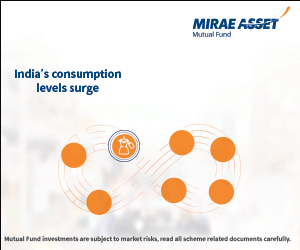Best Investment Options for Senior Citizens

Today’s senior citizens definitely have more savings and investments compared to their parents, when they were retired, but the cost of living has multiplied manifold. Many of today’s retirees, unlike their parents, do not want to be financially dependent on their children’s earnings. While lifespan has increased, sky rocketing healthcare costs are also a serious concern for senior citizens. For senior citizens the four main investment considerations are:-
- Protection of capital
- Liquidity of investments
- Reducing income tax
- Keeping up with inflation
In this article we will discuss investment options for senior citizens keeping in these key investment considerations.
Senior Citizens Savings Scheme (SCSS):
This is one of best risk free investment schemes for Senior Citizen. The minimum investment limit in this scheme isर1,000 and the maximum limit isर15 lacs. This investment qualifies for deduction under Section 80C of the IT Act. From a liquidity perspective, the scheme has a period of 5 years and carries an interest rate of 9%, one the highest applicable rates for similar instruments. A penalty of 1.5% per cent is levied on the amount deposited, in case the deposit is withdrawn before 2 years and 1% if the amount is withdrawn after 2 years, but before the expiry of the term of the investment. While the returns of SCSS are taxable, if the returns from this instrument do not exceed the basic exemption limit ofर3 lacs, seniors stand to earn tax-free returns. Seniors who have their immediate liquidity concerns addressed though other instruments, should try to maximise investments under this scheme using their surplus funds, since this offers attractive returns and capital safety.Post Office Monthly Income Scheme (POMIS):
This has been a popular investment option with senior citizens for many years. POMIS offers guaranteed 8.5% annualized returns to investors. The maturity period of these schemes is five years. Premature withdrawals are subject to a deduction of 2% of the amount invested if such a withdrawal happens within three years of investment. After three years, the amount of deduction is 1% of the amount invested. The maximum investment limit in POMIS is onlyर4.5 lacs in one account in POMIS orर9 lacs if the investor is investing in a joint account. There is no Section 80C benefit for POMIS investment. The interest income from POMIS is taxed as per the income tax slab of the investor. With rising cost of living seniors cannot rely on solely POMIS for their income needs. Nevertheless POMIS remains a good risk free investment option for senior citizensBank and Company Fixed Deposits:
Bank Fixed Deposits have always been seen as offering with safety and convenience. Currently the interest rate is in the range of 8 to 9.1%. However, the interest rates are likely to go down in the future as Reserve Bank India implements monetary policy easing. Investors should enquire about interest rates from multiple banks because it differs from bank to bank and can make a significant difference to the final return to the investor. Interest earned by FDs is fully taxable at the applicable slab rate and tax is deducted at source. Fixed deposit issues from various companies offer higher interest rates than bank fixed deposits. However, such issues are limited and investors should note that they carry credit risk. Investors should check the credit rating of the companies before investing in the company FDs. Fixed deposits from companies rated AA and above are pretty safe and carry low default risk. Investors should be on the look for such issues, as these are good investment options.Post Office Time Deposits:
Post Office time deposit is in many ways similar to Bank Fixed Deposits. The current annual interest rate for the five year time deposit is 8.4%. Minimum investment isर200, and there is no upper limit. Post Office Time Deposit qualifies for Section 80C deduction under Income Tax Act. The interest on Post Office Time Deposit is however fully taxable, as per the income tax slab of the investorMutual Fund Monthly Income Plans:
While capital safety is an important consideration when you are retired, with increasing life spans and high inflation, you cannot totally ignore equities. Mutual fund monthly income plans are excellent investment options for generating higher returns on your investment with limited risks. These plans invest 20 – 30% of their portfolio in equities, to boost the interest earned from debt investments with higher equity returns. Mutual fund MIPs offer better liquidity than some other investment options discussed above. Mutual funds charge 1% exit load for redemption of units within one year of allotment. After one year there is no exit load. Returns of mutual fund MIPs are more tax efficient compared to other investment options. Even though MIPs are treated as debt funds from a tax perspective, the dividend distribution tax paid by the mutual fund is lower than the tax rate of the investor in the highest tax bracket. Savvy investors can save taxes further by opting for systematic withdrawal plan (SWP) instead of dividends. SWP withdrawals are assessed for capital gains tax. Long term capital gains (more than three years in case of non equity funds) are taxed at 20% with indexation. Top performing MIPs have given 3 year trailing annualized returns of over 12%. Inflation is a fact of life and over the last few years risk free investments like fixed deposits have not been able to give post tax returns that have beaten inflation. Equity as an asset class can beat inflation and as such should comprise a portion of the senior citizens’ investment portfolio in the right proportion. MIPs are excellent investment options for senior citizens because it can help senior citizens keep up with inflation. You can read about some of the top performing monthly income plans in our article, Top 5 Mutual Fund Monthly Income Plans. Global and domestic economic concerns notwithstanding, the outlook on the Indian equity market is very positive. In fact, most experts believe that we are in the initial phase of a long term secular bull market. Having said that, investors should also understand that mutual funds are subject to market risks and that past performance is not a guarantee of future performance. Therefore they should ensure that mutual fund investments are consistent with their risk profiles.Liquid funds:
Senior citizens should consider liquid funds as an alternative to savings bank. While having an emergency fund parked in savings bank is essential from a financial planning perspective, if you can wait for a day to withdraw the funds, liquid funds are an excellent alternative to your savings bank account. While savings bank interest is usually around 4%, liquid funds provide returns in the region of 8 – 9%. Every bit of extra income is very useful for senior citizens. While liquid funds are subject to market risks, the nature underlying instruments in a liquid fund ensures a very high degree of safety. Withdrawals from liquid funds are processed within 24 hours on business days. Some liquid funds offer cash withdrawal facilities with ATM cards, but most do not. You can read more about liquid funds in our article, Liquid Funds: A good option to park your surplus cash Part 1. When planning your investment in liquid funds, you should note that redemption requests are not processed during public holidays or weekends. Therefore, you should have enough funds in your savings bank account to meet exigencies over weekends and public holidays. Having said that, most of us keep funds in our savings bank that we will not need in the next few weeks or even months. Liquid funds are an excellent destination to park those funds. You can read about top liquid funds for investment in our article, Top liquid funds for parking your surplus cash.
Conclusion
In this article, we have discussed investment options for senior citizens. A one size fits all investment solution does not work, because the financial situation and investment objectives of every individual investor is different. Senior citizens should consult with their financial advisors to discuss the best investment options that are suited to their specific needs.
Queries
-
What is the benefit of mutual fund STP
Aug 29, 2019
-
How much to invest to meet target amount of Rs 2 Crores
Aug 26, 2019
-
Can I achieve my financial goals with my current mutual fund investments
Aug 24, 2019
-
Can you tell me return of various indices
Aug 19, 2019
-
What would be the post tax return on different investments
Aug 18, 2019
-
Which Principal Mutual Fund scheme will be suitable for my retirement corpus
Aug 16, 2019
-
What is the minimum holding period for availing NCD interest
Aug 4, 2019
Top Performing Mutual Funds
Recommended Reading
Fund News
-
Axis Mutual Fund joins ONDC Network to Expand Access to Mutual Fund Investments
Apr 18, 2025 by Axis Mutual Fund
-
Nippon India Mutual Fund launches Nippon India Nifty 500 Quality 50 Index Fund
Apr 18, 2025 by Advisorkhoj Team
-
Nippon India Mutual Fund launches Nippon India Nifty 500 Low Volatility 50 Index Fund
Apr 18, 2025 by Advisorkhoj Team
-
RBI Monetary Policy: RBI changes policy stance and lowers rate
Apr 9, 2025 by Axis Mutual Fund
-
Kotak Mahindra Mutual Fund launches Kotak Nifty Top 10 Equal Weight Index Fund
Apr 7, 2025 by Advisorkhoj Team













